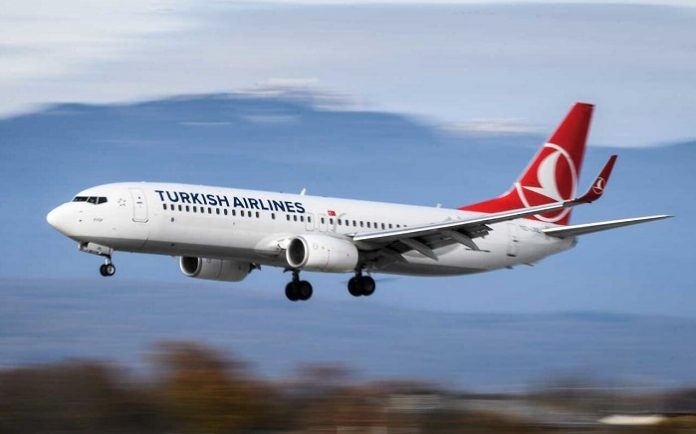The crisis between the Nigerian government and Turkish Airlines came to a head on Saturday, obliging the carrier to meet the requirements of the authorities or face losing its stake in the African country.
Tensions flared on Friday when Nigeria warned Turkish Airlines that its flights might be banned from Nigerian airspace from Dec 16. due to “repeated cases of abuse of passengers.”
Having first denied the warning, the Turkish national flag carrier announced on Saturday that the luggage problem would be resolved and pledged to comply with the requirements of the Nigerian government.
The two parties met on Saturday in the Nigerian city of Abuja. Following the meeting, Turkish Airlines’ officials also agreed to begin the immediate freighting of all leftover baggage.
The Nigerian authority had one condition for letting Turkish Airlines in; that it upgraded its aircraft, the Boeing 737-800, to the larger and more appropriate Airbus A330 and Boeing 737-900 so that its nationals are carried in a safe and comfortable way.
The Nigerian government described the weeks-long crisis as “repeated cases of poor passenger treatment” and warned that the airline must “suspend its operations into Nigeria until such a time when the airline is ready to operate with the right size of aircraft that can transport all passengers with their baggage at the same time.”
The Nigerian Civil Aviation Authority has been long dissatisfied with luggage management issues on Turkish Airlines flights, with bags being left behind. The authority claimed that they have been notifying Turkish Airlines for the past two weeks about a situation that has become acute.
During a recent flight to the African country, Turkish Airlines allegedly left 85 percent of the luggage in Istanbul, angering Nigerian passengers. The excuse has mostly been about space limitation in the cargo hold as Nigerians often travel with excess luggage.
Turkish Airlines flies to four cities in the country — Abuja, Kano, Lagos and Port Harcourt.
Excess and oversize baggage is charged by Turkish Airlines but the company started to not restrict the number of bags allowed to be checked-in. However, since the aircraft cannot hold an unlimited amount of luggage, people who check extra bags might not receive them at their destination because the plane reaches maximum capacity, without the airline notifying them.
An aviation expert, who spoke on condition of anonymity, told Arab News that the Nigerian government has been using the aviation card for its domestic agenda.
In early December, an order was issued by the Nigerian federal court to confiscate an Emirates Boeing 777 over a ruling that the airline should pay back 8,120 Nigerian naira ($22,400) to a Nigerian citizen for expenses incurred when a ticket was canceled 12 years ago.























